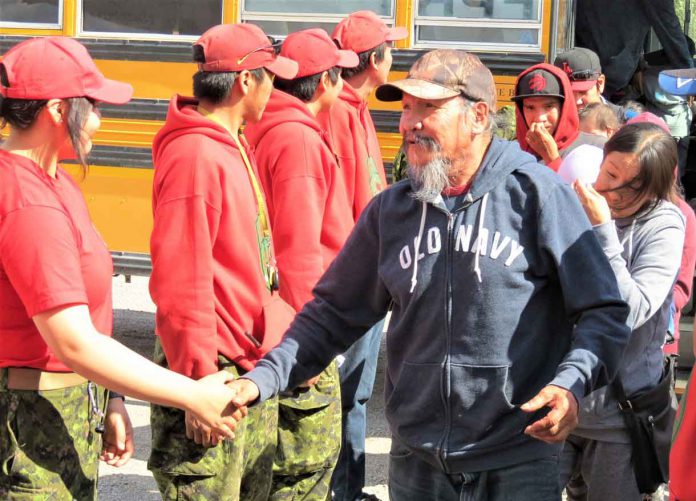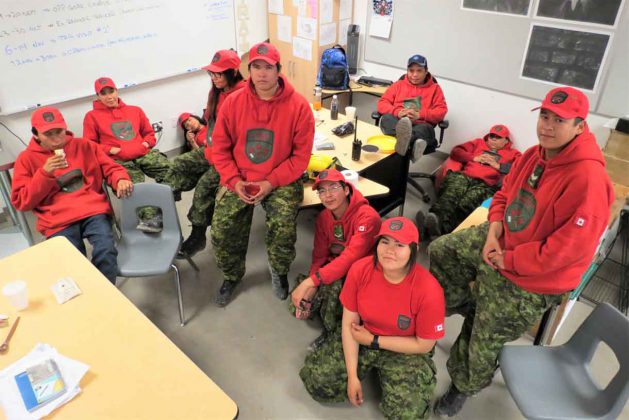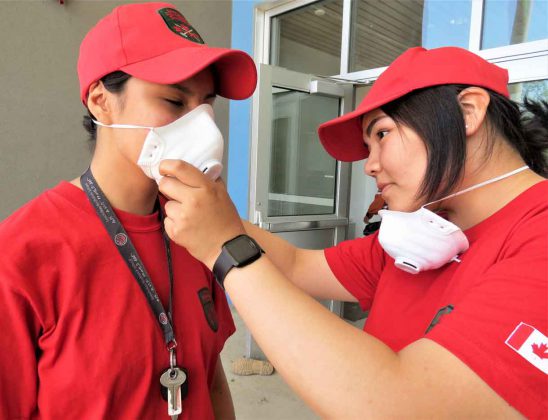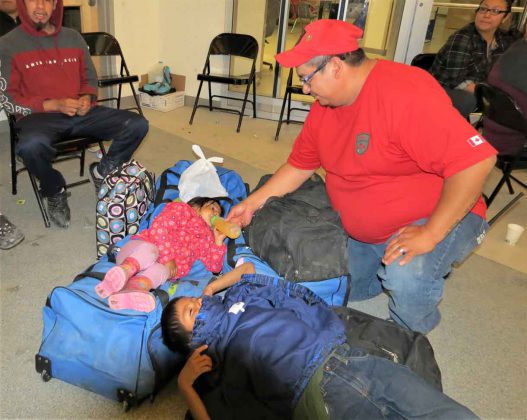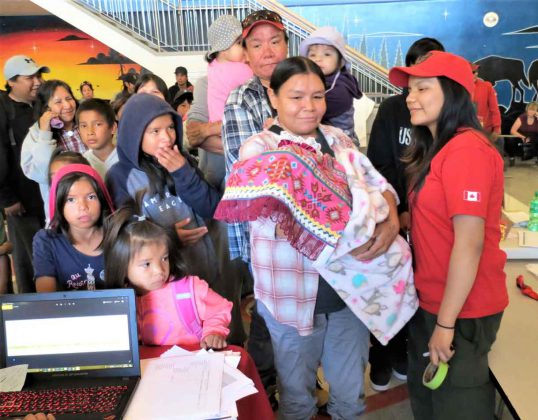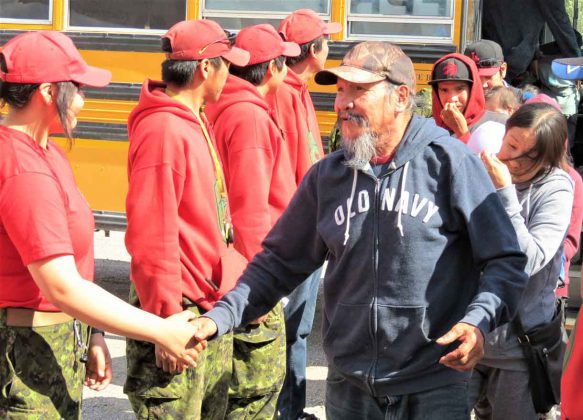PIKANGIKUM – The Canadian Rangers of Pikangikum have proved their capability in responding to two forest fire emergencies in a very short period of time, according to one of the Canadian Army instructors who provided the Rangers with their basic training.
“What they have done in Pikangikum’s two fire evacuations has been outstanding,” said Warrant Officer Christopher Thomson. “They learned from the first fire and, while they’re working long hours, it’s routine for them now. It’s more a long, tedious work day for them – every day.”
The Rangers have been working long hours since the isolated First Nation, with a population of more than 4,000 and located 510 kilometres northwest of Thunder Bay, declared a second mass evacuation on July 5 because of a second out of control forest fire.
The Rangers are drawing up priority lists of the community’s most vulnerable – the sick, elderly, pregnant mothers, and children – and getting them onto evacuation planes. They assist with their baggage and provide transport to the airport when necessary.
All the Rangers speak their native Ojibway, a skill that has often been invaluable because many of the older members of the community have little or no knowledge of English.
“I don’t know where we’d be without the Rangers,” said Chief Amanda Sainnawap. “They have done a wonderful job.”
The new Pikangikum Ranger patrol graduated with 34 new Rangers in February after only a week’s basic training. After a little further training, they took a lead role when the first forest fire emergency was declared on June 5, after the flames got to within two kilometres of the community. The emergency was declared over on June 9. By then about half of Pikangikum’s population had been evacuated.
The current forest fire is considered to be more serious than the first one and military and civilian aircraft are flying evacuees out daily. Adding residents who self-evacuated by boat, about half of the population has left Pikangikum.
Included are a few Rangers who decided they had to leave with their families. “We understand why they felt they had to do that,” said Sergeant Buster Kurahara, the commander of the Pikangikum Ranger patrol. “It was a difficult decision for them.”
He said he is proud of the performance of the Rangers. “We learned from the first fire,” he said. “We quickly got set up for this one and I didn’t have to tell them what to do. They knew. They’d learned. They are working long hours and we’re eating on the fly when we can.”
On the days when smoke from the fire blew into Pikangikum and embers and pieces of birch fell out of the sky the Rangers wore face masks to help them breath. Despite the masks, two Rangers required medical treatment for problems with their breathing. They are back on duty.
“I’m proud to wear (my Ranger) uniform and so are all the Rangers,” Sergeant Kurahara said. “We’re proud to serve our community and our people.”
Master Corporal Lilly Kejick said she became a Ranger in February so she could serve her people “instead of sitting at home.”
Like many of the Rangers, she said, she has worked long hours in both of the evacuations. “Some of us, many of us, have gone without sleep for as much as two days,” she said. “The fires are the first time the Rangers have been able to serve our community and our people are proud of what we’ve been able to. We’re proud to have been able to do it for them.”

